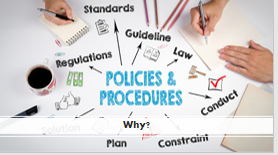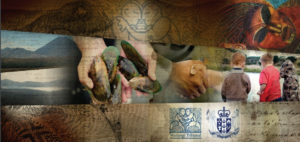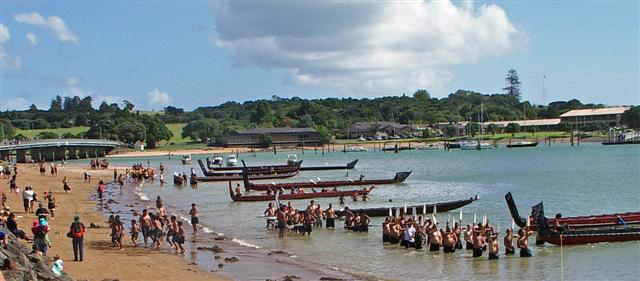Organisational Policy and Procedures
National Adverse Event Policy Commences
The new National Adverse Event Policy commences for Aotearoa/New Zealand on 1 July 2023. It improves on the old one.
Restoration in the National Adverse Event policy?
Key elements of the restorative approach
1. Communication and Support
The National Adverse Event policy highlights the importance of effective communication and support for patients, their families/whānau, and healthcare professionals involved in adverse events. Open and honest communication is crucial to addressing the harm caused and to keeping people informed.
Appropriate and timely support and care is also crucial to assist people to cope with the aftermath of an adverse event. Planning for care is important and may include specialist and community referrals.
2. Learning and Improvement
The restorative approach emphasises the importance of learning from adverse events to prevent their recurrence. Healthcare agencies must review and investigate an event to uncover why and how it occurred and to plan and implement necessary changes to prevent similar incidents in the future. This focus on learning and improvement helps restore trust in the healthcare system by demonstrating a commitment to addressing and preventing harm.
3. Redress and Remedies
Restorative measures aim to redress harm and restore wellbeing. Redress can take many forms. It will depend on the legislative and regulatory framework, the wishes of the person harmed and the nature and circumstances of the harm. An agency’s acknowledgement of harm may be sufficient. An apology for harm and its impacts can mean a lot. Or it may be necessary to arrange for compensation (ACC) and resourcing for ongoing care.
4. Cultural Considerations
The restorative approach recognises that cultural considerations are relevant to how healthcare professionals should engage with people impacted by an adverse event. Māori principles of restorative justice, such as manaakitanga (hospitality), whakawhanaungatanga (building relationships), and whakamana (empowerment) are important.
Conclusion
In Aotearoa/New Zealand, we’ve seen the restorative approach in action in a range of contexts, for example, in the Youth Justice System and criminal sentencing. It has been proven to have many benefits. As a key element of the new National Adverse Event Policy – it will foster a culture of accountability, trust, and learning within the healthcare system.
Check out Te Tāhū Hauora/HQSC website for all the resources it provides to support the implementation of the National policy.
Matariki policy and procedures
Matariki policy and procedures can support your workplace to celebrate Matariki and progress its commitment to diversity, equity and inclusion.
Matariki is a significant event in Aotearoa. Widely known as the start of the Māori New Year, it marks the rising of the cluster of stars known as the Pleiades.
In Matariki opportunities and significance in the workplace, we covered the introduction of a new Public Holiday for Matariki in Aotearoa and that there are different traditions surrounding Matariki. In this post, we consider how policy content and processes can be used to support the celebration of Mātariki in your workplace and more broadly, to help grow an inclusive and equitable organisational culture.
Cultural Awareness and Respect
If you haven’t already got a policy to reflect your organisation’s commitment to cultural diversity and inclusion, now is the time. If you’re subject to the Social Sector Accreditation Standards or Health and Disability Standards or working in the education sector, the policy is a “must.”
Even if these standards don’t apply, a policy in this area is a good way to keep you compliant with your employment obligations, health and safety requirements and the Human Rights Act 1993. Not having a policy in this area, opens you to significant risks. You can DIY or contact the Policy Place for help.
For those who do have an existing diversity and inclusion or non-discrimination policy, you could incorporate guidance for honoring Matariki and provision for learning about Matariki and its significance for the local iwi.
Inclusive Celebrations
You could create procedures that encourage inclusive celebrations and events centered around Matariki. The planning and organisation of these activities should respect the protocols of local iwi and reflect collaboration with Māori staff and cultural advisors.
Learning and Development Opportunities
Learning and development should be a part of your diversity and inclusion policy. You could add in specific reference to learning and development about local traditions relating to Matariki.
There’s always lots happening in Matariki. It’s a great chance for your workplace to engage in local celebrations, cultural workshops, Te Reo Māori classes and other wananga/educational initiatives to deepen cultural understanding and knowledge.
Engagement with Māori
Engagement and collaboration with Māori during Matariki and beyond is a Treaty obligation for government-funded Tau Iwi/non-Māori services. The nature of the engagement should be negotiated and reinforced by policy and processes and may include formalised partnerships with hapū, iwi and Māori serves, a system of parallel development (Kaupapa Māori and mainstream) participation in community events, and support for initiatives promoting te reo Māori and cultural revitalization.
Display and Communication
Create procedures in your policy for displaying appropriate Matariki-related symbols, links and messaging on your physical and online sites. Visual representations must be culturally respectful and align with Māori protocol.
There are a lot of resources and information about Matariki available. For example, check this and the official Matariki website out.
Implementation
As we know, the challenge with policies and procedures is not just to develop them. You also have to implement them and get your staff/kaimahi onboard. To effectively integrate Matariki-focused policies and procedures, consider:
- involving staff/kaimahi and cultural advisors in review and evaluation’
- training and educational resources for the workplace and your service users about Matariki eg workshops, guest speakers, or online modules that promote cultural awareness and sensitivity
- information and updates about how to ensure consistency with and respect for ngā tikanga me te reo Māori in workplace conduct and processes like training; complaints and disputes resolution.
Review and Evaluation of Matariki policies and procedures
Regularly review and evaluate the effectiveness of your Matariki policy content and procedures. Seek feedback from your staff and those you engage with to enable you to build on what’s working and improve as necessary.
Conclusion
It’s important that incorporation of Matariki into your organisational policies and procedures represents a genuine commitment to achieving cultural diversity, respect, and inclusivity in the workplace.
Embracing Matariki and its cultural significance in your workplace is one way to honor the rich cultural heritage of Aotearoa. It can help you to foster a sense of belonging, strengthen relationships with hapū, iwi and help you build an environment that is appreciative of diverse cultural knowledge and traditions.
Policy and Procedure Templates – generic & customised
Policy and procedure templates can take you from the bottom of the hill straight to the top.
Most organisations need policies and procedures. But getting your policies sorted can feel like an uphill battle that doesn’t ever end. Templates though can, depending on the type you choose, give you the basic structure to get you started through to all the policy content you need.
To help you make the best choice, we’re reviewing a range of different template options – considering their pros and cons. The good news for social, health, education and housing agencies is that you can access all options through The Policy Place.

Starter Policy and Procedure Templates
If you’re wanting a policy template that gives you a structure to start with, there are a few options around that basically offer advice about policy writing. They typically give you a policy structure along the lines of headings like Purpose; Policy; Procedures; Responsibilities; Related Documents and Policies.
The Workplace Policy Builder is a good example.
Having a structure can help get you started and is a good option if you’re into the DIY and freebies. However, you’ve still got all the hard work of policy creation to do.🤔 Not only that. You also have to keep the content reviewed and updated for currency with law, regulations, and other requirements.
Area-specific Policies
There are lots of policy templates on the market aimed at particular areas like Human Resources and Health and Safety. Sometimes the products come with additional advisory services like HR advice and support. They are a good option if you want access to particular knowledge and expertise.
BUT…
These products can be expensive.
AND…
They can be challenging to implement because they are not typically focused on your particular organisational context. Although they may incorporate some branding and sometimes, an introduction from the CE, they usually apply generally, which comes through in the content.
The Policy Place online policy service overcomes these problems:
![]()
- We are not wholly generic. We provide core policy content but specifically for different contexts of social services, health, disability, housing and education and to a limited extent for an organisation itself.
- We are cost-effective because we address common policy needs of organisations associated with law, regulations and compliance standards and want to be accessible to cash-strapped non-profits and start-ups.
- We keep core policy content reviewed and updated for members.
Customised Policy and Procedure Templates
Customised policy products are harder to come by. That’s because they’re usually done by consultants. They can be great because they are built around the organisation’s particular needs and incorporate a lot of operational detail.
BUT…..
Customised policies are usually very expensive. This reflects a heavy investment of time by consultants with specialist knowledge.
AND
Customised policies are a one-off product. They are not subject to regular review and updating, which is required for compliance with standards that apply in areas like Health and Disability, Social Services, Training and Housing.
You can have it all
The Policy Place offers you the chance to customise your policies while reaping the benefits of regular reviews and updates of core policy content. Customisation is optional and done by you as the client.
- The system works easily:
- You sign up for the Essentials Package, which the Policy Place puts together for you based on the information you provide and your compliance needs.
- You decide on how you might want to customise – add paragraphs or pages, edit core policy text or grab it all.
- You decide who you want to authorise to customise your policies and authorise them on the system.
Any problems? Contact the Policy Place who wll help.
Induction Policy
Do you need an induction policy or not? In this post, we look at the pros and cons of having a policy and some induction essentials.
What is induction and should everyone do it?
Induction is a process used to welcome and onboard a new person to your worksite. Your worksite may be a physical place or remote online environment.
The inductee may be a new employee, member of governance, contractor, student, intern or volunteer. As a rule of thumb, everyone should be inducted to a new working environment.
What should Induction cover?
Induction introduces a person to the culture, relationships, and processes of an organisation. It helps set the tone for their ongoing participation. It’s important therefore to get it right in terms of how you do it and what you cover.
Things to think about and prepare when inducting include:
- role expectations and responsibilities
- relevant health and safety matters
- the welcome process (respectful and responsive to the cultural background of the new appointee (eg mihi whakatau))
- arrangements to address the new appointee’s support needs (eg reasonable accommodation for disability)
- access to key organisational documents and systems
- communication channels
- a tour of the worksite which, for a physical site, includes evacuation points and emergency exits
- relationships and people the new appointee is likely to interact with.
For temporary and contract roles, induction will be different. It will cover essentials like relevant health and safety matters but may be more task-focused.
Should you have an Induction Policy?
It is necessary to properly induct people to a worksite. But you can do what’s required without necessarily having a specific Induction policy.
Benefits of an Induction Policy
In Are you missing out? Is good policy what you need? we talked about the benefits of having good policies. The benefits of an Induction policy include:
- That the status of “policy” helps signal that Induction is important, a “must-do” rather than “nice-to-have”
- The policy can guide what should be covered, when it should be covered and who is responsible for it
- That policy will help promote consistency in how induction is undertaken across the organisation.
But it’s not always best….to have everything in policy:
- Less is often more when it comes to policies. Too many can become unworkable and discourage people from using them.
- Induction should be responsive to an individual skill level and job role. Policies can sometimes impede responsiveness if an organisation has a top-heavy sign-off and approval process for when changes to a process in a policy are made.
Policy isn’t the only way to provide guidance about induction. At the Policy Place, we often use Checklists and diagrams as quick guides for our members on processes. There are other options too including:
- Practice Notices
- Team meetings
- Charts
- Videos
- Email communications
- Workplace News
- Training (paper and online modules)
- Coaching
- Mentoring
Consider preferences for an Induction Policy
People have different preferences for how they like to be guided and informed. Consider these preferences when deciding if you need an Induction policy for your workplace.
If your staff are kanohi-ki-te-kanohi (face-to-face) type of people and you’re in a relatively small workplace, your best strategy may be to minimise policy content and prescribe procedures like Induction in a more “hands-on” way. A Checklist coupled with a formal acknowledgment and sign-off from the responsible manager and inductee that induction was completed might just do the trick.
Proof that induction is done and dusted is important whatever strategy you choose for induction.
On the other hand, if you’re a big workplace with a number of managers and staff who are responsible for induction, a policy may well be your best strategy. It will help build consistency into your process and as an organisational policy, is more likely to be taken seriously.
At The Policy Place, we cover the following in our Induction Policy:
- The reason/purpose of the policy
- Who’s Responsible
- Key Requirements
- Compliance
- Date when policy should be reviewed.
Helpful links
For our online Policy Place users, we incorporate Helpful links. These are links that our clients can access for related online information. From our Induction policy page, for example, our client can access our online Recruitment and Selection policy and Health and Safety Responsibilities policy page.
We often include relevant external links for legislation and resources like:
Check these resources out if you’re needing more help with your Induction Policy or process. Better still, if you don’t want to any more worry about writing, reviewing and updating policies, get in touch with us now. We offer online and bespoke policies and want to lighten your workload.

Treaty-based policies – the Waitangi Day Challenge
With Waitangi Day coming up, improving on our Treaty-based policies is the challenge.
The historical travesty of Treaty breaches by the Crown, racism and the intergenerational impacts are widely acknowledged in Aotearoa. Remediation requires strong policies to support Kaupapa Māori initiatives and if you’re a mainstream agency, policies to guide your agency’s commitment to equitable social and health outcomes for Māori and eliminate racism.
Treaty-based policies – the Policy Place approach

In a previous post, we outlined the Principles of Te Tiriti o Waitangi from the Waitangi Tribunal in its Hauora Report. At the Policy Place, we use these principles along with compliance criteria to inform policy content for our online members and for our reviews and updates of members’ policies.
Contact us about joining our online policy service if you like the idea of having your policies reviewed and updated.
If, you prefer the DIY approach, we suggest you apply these principles when developing, reviewing and updating your organisation’s policies and procedures.
Treaty-based policies for health and disability services
 If you’re a health and disability agency, policy content has to answer the criteria in Ngā Paerewa Health and Disability Standard 8134:2021. Criteria outlined in Outcome 1: Our rights are important in this regard, including the requirements for services to:
If you’re a health and disability agency, policy content has to answer the criteria in Ngā Paerewa Health and Disability Standard 8134:2021. Criteria outlined in Outcome 1: Our rights are important in this regard, including the requirements for services to:
- Embed and enact Te Tiriti o Waitangi across the organisation and its work (1.1.1)
- Cultural safety (1.1.2)
- Be Māori-centred to support equitable outcomes (1.1.4)
- Recognise Māori mana motuhake (1.3.5)
- Promote an environment in which it is safe to ask the question ‘how is institutional and systemic racism acting here?” (1.5.5).
Social Sector Accreditation Standards (Level 2)
If you’re an agency funded by the ministries of Social Development or Justice or by Corrections and are subject to Level 2 of the Social Sector Accreditation Standards, different but far less onerous criteria apply to meet the expected standard of Cultural Competence. The criteria aim at culturally appropriate services. They do not necessitate the assessments and interrogation of self and system prescribed by Ngā Paerewa.
But why not aim for this higher standard, the stronger criteria? That’s the approach we take at the Policy Place. The disparities between Māori and non-Māori in areas like income, housing, justice, and prisons are, after all, comparable to those that exist in the health and disability areas.
Treaty-based policies in action
Treaty-based policies are a good start. But they are not enough. Action is needed.

A plan to guide how policy implementation can help. It’s also a requirement of Ngā Paerewa.
Many of our members have their own plans. But for those who don’t, the Policy Place provides a template they can use to plan steps to implement their Treaty-based policies and address other inequities.
For Waitangi Day, we urge members to review their plans and the progress they have made with them. Compile and keep the evidence and outcomes of review for audit purposes. Make adjustments based on what data tells you about the outcomes your service is achieving, client/patient feedback about their experiences and rates of access and usage of your agency,
How we can help
Compliance is a big job especially if it’s part of a management role that demands your attention on so many other things. We can help with that – imagine your life without the worry of ongoing reviews and updates of your policies and procedures!
Contact us at the Policy Place to talk about your policy needs and how we can support you.
Legislative compliance – we have you covered
Have you been asked about a legislative compliance policy?
If you’re an online policy member with the Policy Place, you can relax. We’ve got you covered.
All our policies are based on the law and we review them by reference to the law and regulations. If and when legislation changes, we review and update any affected policy.
We don’t just say we’ll comply with the law via a legislative compliance policy. We have the processes in place to do it. Here’s how.
Legislative compliance during policy development

We research the law, Te Tiriti o Waitangi/ the Treaty of Waitangi, regulations, accreditation and auditing standards to identify if a policy is needed and what it must address. Although we have hundreds of policies in our policy library, gaps still emerge. Recently, for example, in response to a request from a member, we developed a policy on Remuneration of Board members/ Trustees.
Monitoring for legislative compliance
We monitor the passage of new and amending legislation so our members have the policies they need before new legislation commences. As examples, we recently updated members’ online policies in response to the Fair Pay Agreement Act 2022 and the commencement of the Protected Disclosures (Protection of Whistleblowers) Act 2022.
Other sources of potential change that we monitor are Treaty jurisprudence and decisions of the Employment Relations Authority.
Review and updating of policies
We review and update our members’ policies based on a two-yearly schedule. As part of this, we review the law, Treaty and other jurisprudence, regulations, and auditing criteria that apply to the policies being reviewed.
A broad approach

Typically, a legislative compliance policy lists the main legislation, regulations and rules that an organisation has to stay on top of. But this is a narrow approach.
By contrast, at the Policy Place we aim for policies that comply with the law and regulations and with Te Tiriti o Waitangi -as a founding document of Aotearoa. We also consider International Instruments like:
- The United Nations Convention on the Rights of Persons with Disabilities
- The United Nations Convention on the Rights of the Child
- The Optional Protocol to the Convention against Torture and Other Cruel, Inhuman or Degrading Treatment or Punishment (OPCAT)
- The United Nations Declaration on the Rights of Indigenous Peoples
Want help with your policies?
Keeping up with the law, regulations and other changes can be time-consuming, especially for already-busy HR and operational managers. Let us help – we want to lighten your load.

Fraud and corruption – not my problem (or 🤔)?
At the Policy Place, we’ve just finished reviewing and updating the Fraud and Corruption policy as part of our cyclical review of our online Financial and Property Management policy pages.
Sometimes, people think they don’t need a Fraud and Corruption policy. But they are mistaken.
Yes, we want to think the best of the people we work with. But that doesn’t mean we should bury our heads in the sand.
Policy and procedures that guide how your organisation prevents, detects and responds to fraud and corruption are a must! Policy and procedures to prevent and respond to fraud and corruption are also criteria for accreditation and auditing under the Ngā Paerewa Health and Disability Standard, the Social Sector Accreditation Standards and Community Housing Performance Standards and Guidelines.
Here’s some ideas about what to cover in your policy and procedures.
Prevention of fraud and corruption
Training and information for staff on how to report concern about fraud is a key requirement. Staff also need to know that they will not penalised for reporting and if applicable, that they have Whistleblower protection.
Risks and mitigations
Think through the risks – what parts and dynamics of your operation are vulnerable to fraud and corruption and what processes help to mitigate the risks. Here’s some examples of corruption risks and how these might be mitigated.
| CORRUPTION RISK | CONTROL EXAMPLES |
| BRIBERY | |
| Bribery by gifts and other inducements aimed at influencing decisions. |
|
| CONFLICT OF INTEREST | |
| Conflicts of interest may lead to favouritism and preferential treatment in procurement and other areas. |
|
| DISHONEST OR CORRUPT DEALING WITH ASSETS | |
| Assets, including intellectual property and confidential information, may be disposed of or improperly dealt with for personal gain. |
|
Reporting process
Identify and make sure everyone knows how to report concerns about fraud and corruption. It’s important in this regard that the process applies for everyone in the organisation, including the CE, managers and board/governance.
The process should include when allegations will be reported to Police, investigation of concerns, rights of those being investigated and protections for those who report.
Through training and information, people should be made aware they should provide detail when reporting, but that they must not undertake an investigation themselves.
Wanting help?
If you’re worried you’re not covered or if you’d like to know more about our online policies that we keep updated and reviewed for our members, get in touch.

Contractor or Employee – what’s the difference?
The NZ Employment Court’s decision (Uber case) issued 25 October 2022 is likely to have some big ramifications for the workforce.
Social service, health and community agencies and iwi, Māori services, subject to Social Sector Accreditation and Health and Disability Standards, may be affected.
Contractor versus Employee – why does it matter?
The case concerned the difference between an employee relationship and independent contractor. It involved four Uber drivers claiming that they were employees and were therefore entitled to minimum statutory entitlements like sick pay and paid holidays.
The difference between an employee and contractor has long been a challenging and contested issue. It has particularly important ramifications today given more use of remote working and a labour shortage in Aotearoa/NZ that is associated with more use of independent contracting.
The issue of contracting versus employment status also has pressing justice implications. Independent contracting can exploit and compound the disadvantages and hardship experienced by vulnerable populations, such as migrants and refugees. These groups may be most in need of statutory employment protections and entitlements. Yet, if they are unfamiliar with our law they may be more likely to enter contractual relationships that remove these entitlements from them.
The Court’s approach
The Uber case was about the status of the four Uber drivers. The court focused on the nature of the relationship between Uber and the drivers (as required under sections 6 (2) and (3) of the Employment Relations Act 2000.)
While the drivers claimed an employment relationship, Uber argued it was an intermediary platform that facilitated a contractual relationship between its drivers and those providing or wanting a service. The Court found against Uber because of evidence showing the company had a high degree of control over the drivers. Although the control was less direct and had a different look and feel from the more classic employment relationship, the Court found Uber’s ability to control the drivers was just as strong. The technology they used did not take the control away. Rather, it helped the company exert control in a myriad of ways.
Implications
The Employment Court clarified that this case was about the employment status of the four Uber drivers. It was not a declaration about the status of all Uber drivers. However, it will clearly have ramifications for Uber.
It may well have implications in other areas. At the Policy Place, for example, we work with organisations in service industry where it is not uncommon for facilitators, carers, advisors and counsellors to be engaged as independent contractors.
Time for review

Review use of contractors
In the wake of the Uber case, it may be timely to review and rethink contracting arrangements. Be open-minded and think carefully about the role undertaken by a contractor – how much control they have over when and how they do their mahi/work, who benefits, whether they can grow and diversify and who controls things like pricing and performance.
Be wary of assumptions and keep in mind that:
- A contract that states a person is not an employee will not be the end of the matter. You can’t simply contract out of the Employment Relations Act 2000.
- A person can work for more than one organisation and still be an employee. As the Court noted in the Uber case, many workers these days work for multiple employers juggling part-time work.
- Flexibility and choice can be part of working as a contractor or employee. A casual employee can work variable hours as much as an independent contractor. With flexible and remote work these days, many even in full-time work can set and vary their own hours
- Although it’s more typical for a contractor than an employee to use their own tools and assets like a car, device and phone for work, this won’t be determinative. It can be a strong sign of the degree of inequality and control that one party has over the other ie that the party in control can move their costs and liabilities to the other party
- There is more mana and justice in contractual relationships that are based on informed agreement. If a person is unfamiliar with reading English and contracts, support them to obtain information and advice about the type of arrangement they want to enter – a contracting or employment relationship.
Alcohol and drug use at work – Top Tips
1. Prevention
Information
Management ensures staff are informed about the risks of consuming alcohol and drugs.
Even with out-of-hours consumption there are risks. Hangover, for example, can mean poor concentration, carelessness on the job, fatigue, risky behaviour leading to injuries and fatalities. A staff member/kaimahi who is known to drink excessively or consume drugs at or outside of work also risks the reputation, credibility and trust the community has in the organisation.
Encourage self-management
Provision for:
- staff to self-manage for the effects of their alcohol and drug use on their work
- all staff to be alert to the risks posed by themselves and their colleagues from alcohol and drug use
- voluntary disclosure to management by staff if they are concerned about their alcohol and drug use and its effect on their ability to work safely.

2. Respect rights
3. Rehabilitation
Contact us

The Tikanga Revolution – get in the waka now!
Tikanga Māori is applicable in NZ courts and equally, applicable to kaupapa Māori and generalist social, health and education services.
In our last post, we outlined the treatment of tikanga in Ngāti Whātua Orākei Trust v Attorney General – a Treaty-settlement case. In this post, we look at the Supreme Court’s treatment of tikanga in Ellis v The King and how it might be relevant to the delivery and dispute processes in social, health and education agencies.
Ellis v The King

Winkelmann CJ in Ellis v The King
Ellis v The King was an appeal to the Supreme Court against criminal conviction. The case had a 30- year, highly contentious history in Aotearoa. The Appellant passed away in 2019 after the Court had granted him leave to appeal but before the appeal was heard. An important first issue for the Court was therefore whether it should allow the appeal to continue posthumously.
The majority of judges (Winkelmann CJ, Glazebrook & Williams JJ) held that the appeal should continue. Their reasoning differed but all agreed that tikanga was relevant to the issue. They were assisted in their decision by a Statement of Tikanga that was agreed by parties through a wānanga involving Mātanga/experts in tīkanga.
Takeaways
To add to the observations made by the court in the Ngati Whatua case, here’s some of what the judges in the majority had to say about tikanga:
- Tikanga Māori refers to the values, standards, principles and norms that shape what Māori consider as the right and just way of doing things (Statement of Tikanga). It is not therefore just about rules. It’s also about giving practical effect to the principles.
- Tikanga should be respected and protected as a “system of law and custom in its own right.“(para 22) It was the first law of Aotearoa and continues to influence and regulate Māori lives. It is embedded in our culture and society and a unique component of our regulatory and statutory systems.
- How tikanga applies in a situation depends on the context. As noted previously, the context may be iwi and hapū specific or, as in Ellis, involve issues that are significant to both the justice system and tikanga.
- Tikanga is likely to be of more relevance and given most weight in a Te Ao Māori context where people expect tīkanga to be a controlling factor. In other situations, where different rules and principles apply, tikanga may be one of a number of considerations.
- When “what is the tīkanga” is in issue, it should be decided from a place of knowledge. In Ellis, the court was advised by an agreed Statement of Tikanga prepared by experts. Other options could be to consult with Māori stakeholders; convene a stakeholder hui; refer to authoritative texts and resources like Waitangi Tribunal reports and tikanga best practice guidelines.
- Tikanga can apply generally – ie not only to Māori and kaupapa Māori services but also to Pakeha and mainstream disputes and activities. In Ellis there was no evidence that either the appellant or the complainants were Māori. In a similar way, section 5 of the Oranga Tamariki Act makes concepts of mana, whakapapa and whanaungatanga applicable to Māori and non-Maori.
Relevance to social, health, education services

Under the Social Sector Accreditation Standards, Ngā Parewa Health and Disability Standard and Te Tiriti o Waitangi, the same recognition and respect for tikanga is expected of social, health, disability and education agencies.
Just how tikanga can be incorporated into service delivery will depend on the particular service context. Expert advice might be obtained, for example, about how manaakitanga can shape the support and delivery of services from the point of a client/whānau referral.
In Ellis, the experts advised and the Court agreed that the tikanga principles of whanaungatanga, whakapapa, mana and ea were relevant to the issue to be decided by the court. By analogy, these same concepts might guide the way in which health, disability, social and education agencies deal with complaints, adverse events, grievances, bullying, harassment and disputes.
Join the Waka

Call us now
The tikanga journey is fast-moving with exciting developments. It’s important to stay up with it, get educated, advised and to open up to doing things in a tika way.
Here, at the Policy Place, we are keen to be part of the tikanga revolution and to tautoko our clients in the waka of change.
Contact us if you want help with your policies and procedures.










